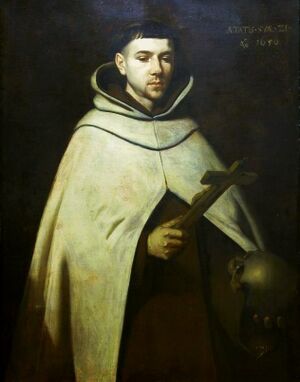Dark night
In the ascent to perfection, the soul passes through what Saint John of the Cross describes as the “dark night.” The first dark night is experienced as one encounters the return of his own personal karma—the human creation that almost completely obliterates for a time the light of the Christ Self and the I AM Presence. This “dark night of the soul” is in preparation for the Dark Night of the Spirit, which involves the supreme test of Christhood faced by Jesus on the cross when he cried out, “My God, my God, why hast thou forsaken me?”[1] In this initiation, the soul is completely cut off from the I AM Presence and the heavenly hierarchy and must pass through the crucifixion and the resurrection, sustained solely by the light garnered in his own sacred heart, while holding the balance for planetary karma.

Personal and planetary karma
In both the dark night of the soul, in which the soul’s light is eclipsed chiefly by personal karma, and the dark night of the Spirit, in which the light of the I AM Presence is eclipsed by planetary karma as well as Christic initiation, the individual must deal with the tests unique to his lifestream and those common to all on the path of the ascension.
In the dark night of the soul, “the darkness that covers the land” is the weight of each individual’s own returning karma as he is also learning to come to grips with world karma. Both types of karma eclipse for certain cycles the light of the soul and therefore its discipleship under the Son of God. When that personal karma is balanced by the soul, it must forge the Christ-identity, pass through the alchemical marriage (of the soul’s union with the Christ Self), and be in a position, if required, to hold the balance for some weight of planetary karma. The latter occurs as the initiation of the dark night of the Spirit which each initiate must face as the supreme trial of his Christhood.
The dark night of the soul, karmically created by individual free will, is the test of the soul’s confrontation with its own karma of relative good and evil (the sin that can be forgiven); the dark night of the Spirit is the initiation of the soul’s encounter with the Great God, Absolute Good, and, by that Good which he has become, of the vanquishing of Absolute Evil, its antithesis. This is experienced as the presence and the absence of Light, as Christ and Antichrist, as well as the active and passive participation of the Son of man in the cycles of Armageddon within and without. This initiation deals with the sin against the Holy Ghost which is unforgivable[2]—the deification of Absolute Evil and the nonsurrender of the dweller-on-the-threshold in the very face of the living God.
The dark night of the soul is the tolerance of the Law, a period of grace for the soul to separate out from error and to transmute it; it is the prerequisite for the dark night of the Spirit. Those who have been given the cycles necessary to pass through the dark night of the soul, but have not done so, must move on, regardless, to the initiation of the dark night of the Spirit. This is the initiation of the I AM Presence. It is the Self-limiting principle of the Law which does not tolerate the abuse of Christ by Antichrist.
The latter initiation, given to saint and sinner alike, signifies that opportunity has run out for the individual to choose to be God. After hundreds of thousands and even millions of years of cycling through the wheel of rebirth, the soul-identity that denies the Presence of the Godhead dwelling in him bodily—His Word and His Work—is cancelled out by his own final decree ratified by the judgment before the four and twenty elders at the Court of the Sacred Fire and the second death.[3]
The system of the Godhead for grace, mercy, and opportunity afforded to all for a season assures that all souls are given many lifetimes to repent of their evil works and be saved. It also assures that though mercy endures forever, Evil does not. The only hope for the perpetuation of holy innocence is that the evil word and the evil work (including that of the Evil One and his agents) can be and is terminated at the conclusion of abundant cycles of God’s justice extended to all.
See also
For more information
St. John of the Cross, “The Ascent of Mount Carmel” and “The Dark Night,” in The Collected Works of St. John of the Cross, trans. Kieran Kavanaugh and Otilio Rodriguez (Washington, D.C.: ICS Publications, 1979), pp. 66–389.
Elizabeth Clare Prophet, The Living Flame of Love (audio recording).
Mark L. Prophet and Elizabeth Clare Prophet, The Path of the Universal Christ, pp. 194–213.
Sources
Pearls of Wisdom, vol. 37, no. 1.
Archangel Gabriel, Mysteries of the Holy Grail.
